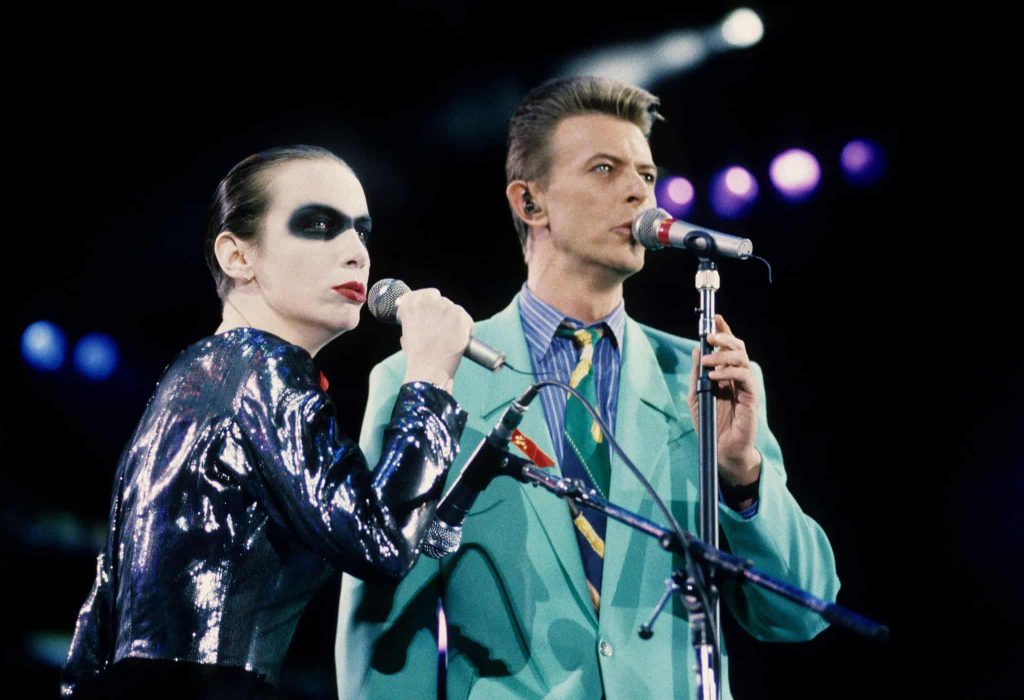
The Weight of the World and the Hope for Connection Echo in “Under Pressure”
Ah, “Under Pressure”, the very title conjures a feeling, doesn’t it? This powerful anthem, a remarkable confluence of the singular talents of David Bowie and the iconic band Queen, stormed the music charts upon its release. Peaking at number one on the UK Singles Chart and reaching number 29 on the Billboard Hot 100 in the United States, it was an undeniable force, a sonic tapestry woven with anxiety and a yearning for human connection in a world that often felt relentlessly demanding.
The genesis of “Under Pressure” is a fascinating tale of serendipity and creative synergy. As the story goes, Queen was working on a song called “Feel Like” at Mountain Studios in Montreux, Switzerland. David Bowie happened to be recording in the same studio, working on the soundtrack for the film Cat People. A chance encounter led to a jam session, an informal musical exchange that unexpectedly blossomed into something far greater. The initial idea of “Feel Like” was eventually discarded, and from the improvisational sparks flew the core elements of what would become “Under Pressure”.
Imagine those creative minds in the studio, the air thick with musical ideas, the push and pull of different artistic sensibilities. Freddie Mercury‘s operatic flair, Brian May‘s guitar wizardry, John Deacon‘s grounding basslines, and Roger Taylor‘s powerful rhythms intertwined with David Bowie‘s chameleon-like vocal delivery and his knack for crafting evocative lyrics. It wasn’t a straightforward collaboration; accounts suggest a certain degree of creative tension, a healthy friction that ultimately forged something truly extraordinary. Each artist brought their unique strengths to the table, resulting in a sound that was both distinctly Queen and undeniably Bowie.
Lyrically, “Under Pressure” taps into a universal feeling, a sentiment that resonates across generations. It speaks to the anxieties and stresses of modern life, the constant weight of expectations, and the feeling of being overwhelmed by the pressures that society imposes. Lines like “Pressure pushing down on me / Pressing down on you, no man ask for” paint a vivid picture of this shared human experience. Yet, amidst this portrayal of strain, there’s a glimmer of hope, a plea for empathy and understanding. The repeated refrain, “Why can’t we give love, give love, give love, give love?” acts as a powerful counterpoint to the feeling of pressure, suggesting that perhaps the antidote to the world’s burdens lies in human connection and compassion.
The song’s iconic bassline, a simple yet instantly recognizable motif, is often credited to John Deacon, though some accounts suggest Bowie‘s initial influence on its creation. Regardless of its precise origin, this rhythmic pulse forms the very backbone of the track, providing a compelling foundation for the layered vocals and instrumental textures. The way Mercury and Bowie‘s voices intertwine, sometimes in harmony, sometimes in a call-and-response, is a masterclass in vocal arrangement, each singer pushing the other to new heights.
The music video for “Under Pressure” is also noteworthy, particularly for its innovative approach. Instead of featuring the artists themselves, it utilized stock footage and newsreel clips to visually represent the themes of pressure and societal anxieties explored in the lyrics. This unconventional choice added another layer of depth to the song’s message, making it feel even more universal and relevant to the world at large.
“Under Pressure” wasn’t initially released on a studio album by either artist. It first appeared as a single in 1981. Later, it was included on Queen‘s 1982 album, Hot Space, and on the 1981 David Bowie compilation album, ChangesTwoBowie. Its enduring popularity speaks volumes about its quality and its ability to connect with listeners on a profound emotional level. Even today, decades after its release, “Under Pressure” remains a staple on radio playlists and a beloved anthem for those who have ever felt the weight of the world upon their shoulders, reminding us of the power of love and connection in the face of adversity. It’s a song that stays with you, a timeless reflection on the human condition.